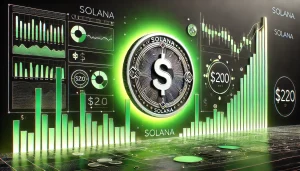The Samsung Bitcoin Futures Active ETF will launch on Jan. 13, giving Hong Kong investors a mainstream avenue for indirect BTC price exposure.
Samsung Asset Management is launching a bitcoin exchange-traded fund (ETF) in Hong Kong.
The Samsung Bitcoin Futures Active ETF (3135:HK) seeks to obtain a performance similar to spot BTC by investing in bitcoin futures products listed on the Chicago Mercantile Exchange (CME), according to a report by Fortune Korea. Cointelegraph also reported the news earlier on Thursday.
“Samsung Bitcoin Futures Active ETF is a competitive product that reflects Samsung Asset Management’s long-term futures-based ETF know-how and risk management experience,” said Park Seong-jin, head of Samsung Asset Management’s Hong Kong branch, per a translated version of the Fortune Korea report. “It is a new option for investors who are highly interested in Bitcoin.”
The latest crypto market rout hasn’t deterred Hong Kong from seeking to become a major hub for the industry. Its financial secretary, Paul Chan, recently reiterated that commitment, adding that Hong Kong will work to attract new businesses from all over the world. The city’s first BTC-linked ETF, the CSOP Bitcoin Futures ETF, went live last month.
An ETF offering for an investment represents a significant mainstream adoption milestone. Freed from the complexity behind the asset itself, institutional and retail investors can enjoy price exposure through a simple, regulated avenue. As such, Samsung’s offering in Hong Kong promises to further expand awareness about bitcoin and access to bitcoin exposure in the region.
But that doesn’t come without intrinsic drawbacks. Although investors can get exposure to fiat price fluctuations of the underlying asset through an ETF, they won’t possess that product itself, being that gold or BTC. And that is a subtle but very important difference, especially for bitcoin. Investors can only take advantage of Bitcoin’s true value proposition of censorship-resistant and sovereign digital money if they choose to purchase and self-custody BTC themselves –– which isn’t rocket science, thanks to some great resources.





















